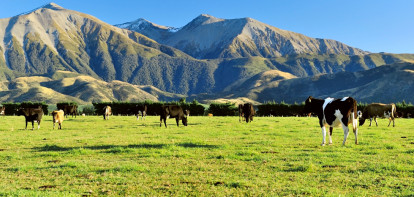Analysis New Zealand
How dairy prodigy Synlait plunged into a crisis
The New Zealand-based company Synlait is facing tough times. The profitability of the company, which focuses on producing high-quality dairy ingredients, is under severe pressure, and it is burdened with significant debts. Additionally, the company is at odds with its largest customer, who also holds shares in Synlait.
In the past, FrieslandCampina was a shareholder of Synlait, but the stake of just under 10% was sold in 2017, yielding a handsome profit of €9 million. At that time, Synlait was among the fastest-growing companies in New Zealand and was considered a shining star in the dairy industry. Currently, Chinese Bright Dairy holds the majority share of 39% in Synlait, but this has become more of a burden than an advantage. The company reported losses last fiscal year, and the results are deteriorating rapidly.
During the presentation of the half-yearly financial results (ending last January) earlier this month, it was revealed that the losses had increased to $96.22 million New Zealand dollars. With a revenue of $632 million, this translates to a loss margin of around 15%, which is excessively high. The loss was nearly five times higher than what the company had projected just two months ago. As a result of these poor results, the stock price took a significant hit, plummeting by over 200% in a year to 62 cents per share. Recently, trading of shares was even suspended at the company's request. Not long after FrieslandCampina sold its stake, the share price was still at $13.
Conflict with Main Customer
CEO Grant Watson ironically mentioned challenging times during the announcement of the half-yearly figures, attributing them to a combination of factors. Alongside increased costs and unfavorable exchange rates, the company witnessed shrinking margins and a decline in dairy demand. The company also had to make various write-downs. However, the main issue arose from a conflict with its biggest customer, A2 Milk Company. The companies have been collaborating since 2012, particularly in producing infant formula. However, A2 Milk Company terminated the exclusive production of its product in September last year, citing Synlait's alleged delivery failures.
It's noteworthy that A2 Milk Company holds a 19% stake in Synlait, but this did not prevent tensions from escalating. This is not surprising given that A2 Milk Company also has a controlling interest in Mataura Valley Milk, a direct competitor of Synlait, thus expanding its market opportunities.
Divesting Business Units
To turn the tide, Synlait is undergoing restructuring. However, in the short term, the company is grappling with mandatory debt repayments. An amount of $130 million was supposed to be repaid by the end of March but was not met. Creditors have granted an extension until July 15. Synlait's total debt amounts to $559 million. Management aims to reduce the debt burden and improve financial performance. One of the strategies under consideration is divesting the production facilities on the North Island. Two subsidiary companies were also put up for sale last year, but so far, no results have been achieved. The company has indicated this week that it is putting extra effort into these initiatives to raise capital.
Despite the challenges, Synlait is not on the brink of collapse. Shareholder Bright Dairy maintains confidence and has committed to the restructuring plan, as have a consortium of banks. This provides some breathing room for management to improve results, although it remains a daunting task. Synlait managed to emerge from losses in 2022 after a challenging period, indicating resilience amidst adversity.

